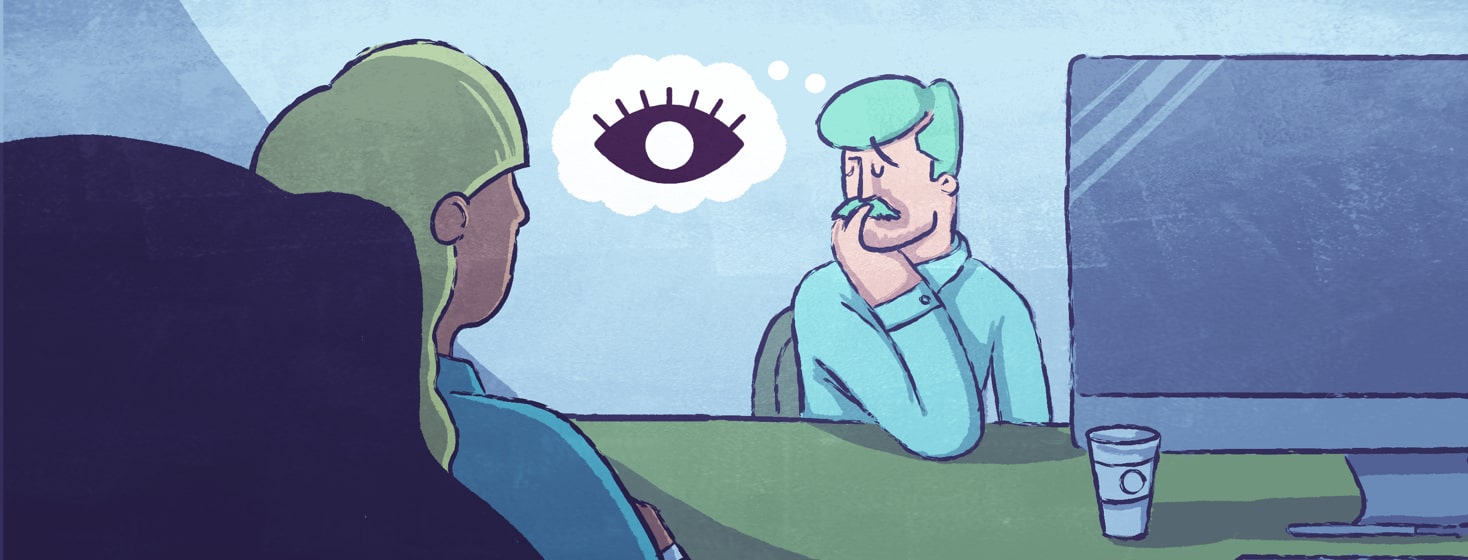The Difficulty of Disclosing a Disability
Seven years later, and I still get nervous when answering the question: “Do you have a disability?”
Qualifications
Seven years of experience, two advanced degrees, state of Pennsylvania Social Work Licensure, a soul filled with passion and empathy, and as soon as I see that question on an application, I begin to shrink, hesitate, and question if I am qualified or “belong at the table.”
Belonging at the table
The irony of this feeling is that at this juncture of my life, I meet all the criteria. I feel like this feeling made sense when I was first starting off in my career. I would question if I deserved or was qualified for positions because of my visual impairment coupled with my lack of work experience.
To combat this insecurity, I intentionally put a mirror up and hung my degrees in my office. I did this to constantly remind myself of my accomplishments. However, this time was completely different. I literally have everything the position required and preferred; yet, I still wondered if I was qualified. Heavy, right? Let’s unpack this. I think my sense of reluctance is a direct correlation of my lived experiences, as well as a societal bias for people who live with a disability.
Disclosing a visual impairment
For as long as I can remember, whenever I disclosed to someone that I am visually impaired, their first reaction is often “I am sorry to hear that” (as if I lost something) or some weird pity-filled statement that makes me feel really uncomfortable.
I don't pity myself
Meanwhile, in my head, I don’t pity myself; on the contrary, I am usually feeling quite empowered. I thrive in my motto: “if I saw what normal people saw I would do what normal people do." However, I admit that on my not-so-good-days, my head voice sometimes sounds like: "well, the way eye see it isn’t terrible, but there are times that I wish I had better sight so I would not have to depend on people as much."
Society's view on disabilities
It feels to me that society has a narrow perception of people with disabilities. I have had countless encounters with people who unconsciously put me in a box once they learn that I live with a visual impairment.
I can only speak for myself, but at this point in my life, I don’t want to be coddled. I want assistance when needed, accessible accommodations, and equitable treatment. So, why do I still get nervous when asked the question, “Do you have a disability?”.
In my mind, there are two scenarios:
- #1 - The Ideal Way: Wow! This person lives with a disability and is able to navigate through society with reasonable accommodations.
- #2 - The Not-So-Ideal Way: Wow. This person has a disability and is going to be a burden to our agency because we are going to have to provide reasonable accommodations.
Choosing to disclose
I can tell you what I did and always do in the end.
I chose to disclose. Although I can “hide” my disability during an interview thanks to amazing zooming features on my computer, it is important for me that the agency knows upfront about my disability and fosters a welcoming culture. In my opinion, nothing is worse than pretending to be something you are not, because the real you is the best you... at least that’s the way eye see it.

Join the conversation